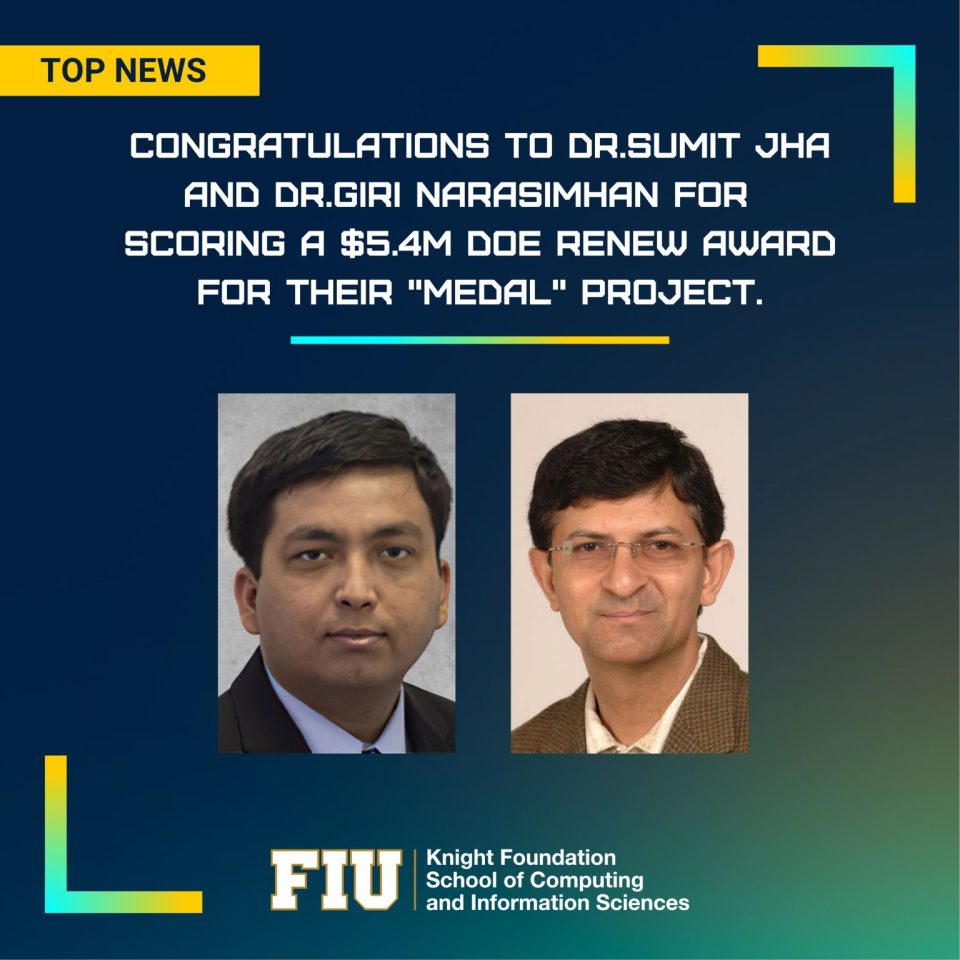
Professor Sumit Jha will lead a team of scientists from six universities and Argonne National Laboratory to train faculty, doctoral, graduate, and undergraduate students in contemporary AI research relevant to the Department of Energy (DoE). The project, entitled, Mobilizing the Emerging Diverse AI Talent or MEDAL, will pursue scientific and technical innovations to support its educational and outreach plans while addressing topics such as transformers, perceivers, large language models, pre-trained visual and scientific models, and control of autonomous scientific labs to reach its goals.
To reach these objectives, the MEDAL project team, including Ph.D. and undergraduate students, will study deep reinforcement learning with symbolic information, verification of image responses from student programs and generation of explanations for incorrect images, the design and calibration of metrics for feedback on codes in Jupyter notebooks, while enhancing privacy and fairness of the underlying AI models. The program will also develop tools to fine-tune and “prune” pre-trained visual models for robotic control in autonomous scientific lab test beds.
Ultimately, the MEDAL project research team will provide AI education and training opportunities to diverse and hitherto underserved populations and promote DOE-relevant research by leveraging online learning and recent advances in large language models and other large pre-trained models for visual and scientific information.
The research team will work together as a collaborative group of six academic institutions mentored by scientists from Argonne National Laboratory. Collaborating scientists and institutions in addition to Argonne National Laboratory include the University of Texas at San Antonio, Bowie State University, Oakland University, Cleveland State University, and the University of Central Florida, as well as Professors Sumit Jha (PI) and Giri Narasimhan (Co-PI) at FIU.
The total award for this project is $5.4 million, of which $1,175,171 is expected to come to FIU over the next three years. Additional information on the project can be found at https://science.osti.gov/-/media/Initiatives/pdf/renew/RENEW_Public_Abstracts-FY23.pdf .
